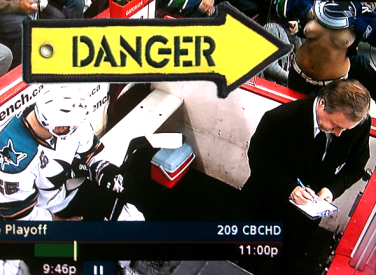 Canada’s proposed C-290 single-game sports betting legislation is currently undergoing its crucial third reading in the Senate, the last step ahead of a vote expected sometime before the end of the current legislative session on Dec. 21. Despite having sailed through the House of Commons earlier this year, the traditionally rubber-stamp Senate has subjected C-290 to far greater scrutiny, and scuttlebutt has it there aren’t enough votes in the upper chamber to ensure its passage. This week saw two more Senators address their legislative brethren on the bill’s merits (or lack thereof).
Canada’s proposed C-290 single-game sports betting legislation is currently undergoing its crucial third reading in the Senate, the last step ahead of a vote expected sometime before the end of the current legislative session on Dec. 21. Despite having sailed through the House of Commons earlier this year, the traditionally rubber-stamp Senate has subjected C-290 to far greater scrutiny, and scuttlebutt has it there aren’t enough votes in the upper chamber to ensure its passage. This week saw two more Senators address their legislative brethren on the bill’s merits (or lack thereof).
Conservative Sen. Vernon White, a former Ottawa police chief, started his speech by telling his fellow senators what he wouldn’t be talking about, examples of which White then proceeded to list in great detail (1,617 words worth – we counted). White was likely proud of this rhetorical sleight of hand, but his speech about the dangers of problem gambling was heavy on anecdotes on light on verifiable information.
In one of the few specific examples White offered, he said the Canada Safety Council (CSC) stated there were 200 gambling-related suicides in 2006. In fact, the CSC’s own website reports that “no one knows exactly how many compulsive gamblers end up taking their own lives in Canada. The CSC believes the number is over 200 a year.” Quite how they arrived at this estimate is unclear, as the CSC goes on to state “there are no national statistics on suicides.”
When Senator Bob Runciman opened the C-290 debate last month, he noted that there were some “wild figures” regarding gambling-related suicides, but the Office of the Chief Coroner for Ontario (the province in which over one-third of Canadians reside) reported the number of suicides with gambling involvement in 1998 was four. Preliminary numbers for 2011 also show four such cases, despite an exponential expansion of both land-based and online gambling since 1998. As Runciman dryly noted, “the dire social consequences predicted by opponents of this bill simply are not supported by the facts.”
BETTING HATES SPORTS, THIS I KNOW, FOR THE SPORTS LEAGUES TOLD ME SO
Eventually, White shifted his focus to the hallowed and exceedingly fragile integrity of professional sports. When challenged by Runciman on some of the leagues’ contradictory stances regarding their product and sports betting, White said “all I know is the evidence [the pro sports leagues] presented” during their testimony to a Senate committee. Way to dig deeper, Vern.
Runciman reminded White that Professor Jeffrey Derevensky, the head of McGill University’s International Center for Youth Gambling Problems and High-Risk Behaviors, had testified to the same committee that C-290 wasn’t likely to create any new problem gamblers, prompting White to retort that he heard these same arguments a couple decades ago when Canada first legalized gambling, but that gambling had nonetheless “had a tremendous impact.”
Tremendous, yet unspecified. And as Runciman pointed out in his speech, Derevensky and the CEOs of the Ontario Problem Gambling Research Center and the Responsible Gambling Council – “people who do the research” and are “dealing in facts, not opinions” – told the Senate committee that the incidence of problem gambling has stabilized at around 1% of the population, despite a vast expansion of gambling during this period.
 FOUND: THE MISSING LINK BETWEEN SPORTS BETTING AND FEMALE ORGASMS
FOUND: THE MISSING LINK BETWEEN SPORTS BETTING AND FEMALE ORGASMS
White’s speech was followed the next day by Tory Senator Thanh Hai Ngo, who also cited the Canada Safety Council’s ‘facts’ on C-290’s potential impact on the suicide rate. However, Thanh also cited opposition to C-290 by the Institute of Marriage and Family Canada (IMFC), the Canadian offshoot of US social conservative nutters Focus On The Family. This is worth going into in greater detail, because if one is truly judged by the company one keeps, Thanh Hai Ngo is quite possibly batshit insane.
In 2009, IMFC executive director Dave Quist argued that casual hookup site OnlineBootyCall.com was a menace to society because if women had orgasms when they hooked up with guys via the site, the hormone oxytocin would flood their brains and make them fall in love with these thoroughly unmarriageable dudes, thereby contributing to the “erosion of the family unit.” The IMFC has also campaigned against a Canadian museum exhibit intended to educate teenagers about their bodies, which Quist said had “basically reduced sex to a pleasurable act.” Unlike, we presume, Quist’s own sex life, a biannual affair involving a lot of gritted teeth and thoughts of England.
LIES, DAMNED LIES, AND SKEWED GAMBLING STUDIES
Anyway, back to the Senate. According to Thanh, the Center for Addiction and Mental Health (CAMH) said 3% of Ontarians were addicted to gambling. In fact, the CAMH’s most recent data states “1.2%–3.4% of Ontarians are affected by moderate and severe problem gambling.” Addicted, affected, tomato, tomahto… Also, the CAMH’s figures come from a May 2012 report prepared for the Ontario Ministry of Health titled The Population Prevalence of Problem Gambling by some Ph. D’s named Williams, Volberg and Stevens, which found that Canada’s overall problem gambling rate was merely ‘average.’ The UK, where sports betting has been legal for decades, had rates ‘lower than average.’
Looking at problem gambling in each province individually (see the table below), the Ph. D’s found that “in all cases of significant change over time … the changes represented decreases in recent years compared to earlier years.” [Emphasis in the original text.] Again, this decrease occurred despite a vast increase in gambling availability over the past couple decades. But Thanh, citing unidentified ‘experts,’ told the Senate that “increases in gambling availability, such as casinos, are associated with increases in problem gambling.”
Williams, Volberg and Stevens made another observation about problem gambling that really needs to be amplified, because it suggests that much of the hysteria generated by anti-gambling activists and public officials doesn’t have a factual leg on which to stand. The researchers noted that “rates of problem gambling were approximately 2.27 times higher in a study described as a ‘gambling survey’ compared to an identical survey that was described as a study about ‘health and recreational activities.’” The Ph. D’s concluded that it was “reasonable to presume that describing the survey as a ‘gambling’ survey (as is typically done) creates a sampling bias by causing greater participation by gamblers who are interested in this topic and greater refusal by non-gamblers who are not interested.” If C-290 is voted down before Christmas, we hope it returns in 2013 rechristened as a ‘health and recreational activity’ bill.






